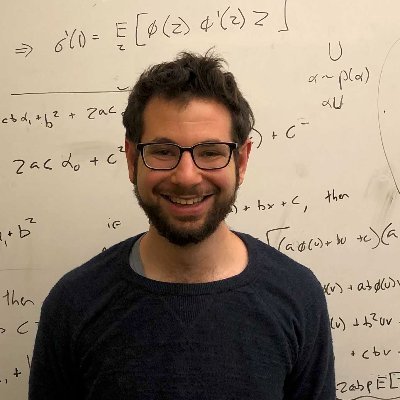
@deepcohen
PhD student in machine learning at Carnegie Mellon. The goal of my research is to turn deep learning into a real engineering discipline.

@deepcohen
PhD student in machine learning at Carnegie Mellon. The goal of my research is to turn deep learning into a real engineering discipline.